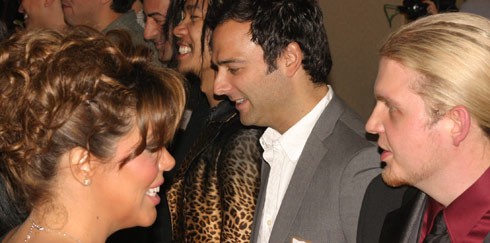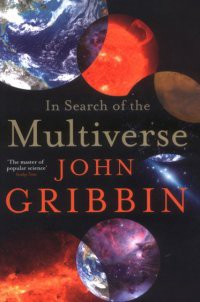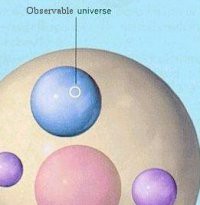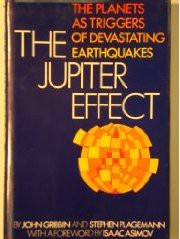The California Cougar Convention and "Carefully Regulated Patriarchal Societies"

“I was told that if I played this song, I’d get a lot of people on the dance floor,” said Jeff the DJ. He had been absentmindedly scrolling through his iTunes. The next words came from Gloria Gaynor, proclaiming that she had been, at first, both afraid and petrified. A handful of women came to the center of the dance floor, ignoring the men. This song was for the women. They’d earned it. And you don’t have to be a shrink to understand why I Will Survive had a resonance at the California Cougar Convention at the Crowne Plaza Hotel in Beverly Hills.
This “convention,” held on a Friday night earlier this month, was a way for “cougars” (women over 40 who are single and exclusively date men at least ten years younger) and “cubs” (the younger male side of the equation) to mingle and add another cliched pairing to the pile. The rules of cougardom have been established over the past half-decade by a handful of celebrity couplings. “It seems like every Hollywood starlet is dating young guys,” Rich Gosse said, through his 80s used car salesman mustache. “Alex Rodriguez dating Madonna. Ashton Kutcher dating and marrying Demi Moore. The whole phenomenon is growing right now.” Gosse has been organizing singles events from his home in San Francisco for more than a decade, but the recent cultural enthusiasm for the buzzword ‘cougar’ has allowed him to target a niche audience. “The only thing I’m concerned about is: does the news media love the word? And that answer is: yes.”
Gosse delivered his sales pitch while sponsors set up booths in the hallway. “Here’s what’s awesome,” said Molly, my girlfriend, pointing at a nearby booth. She had come partly out of her own morbid curiosity and partly to take photos for the Vice essay that was my reason for being here. “The candies they have here are old lady candies.” She was right. Laid out on the table of Rapid Dating Consultant Renee Piane, as an incentive for people to linger a bit and check out her brochure, were those same butterscotch hard candies your grandma always had in her purse. These tiny indicators, to remind you that tonight’s participants weren’t the usual drunken club debaucher set, were all over the place.
“We left the more explicit toys at home,” said Courtney Meredith from Love Shack Parties, a sex toy/lotion/lingerie company based out of Long Beach. Worried that women attending might not be the most sexually liberated around, they brought along subtler versions of their products. This concern turned out to be legit-they were forced to hide their more phallic vibrators after a couple of cougars complained they were “too racy”. (The evening’s gift bag, it should be noted, included four different types of lube, which seems a bit excessive, even when taking into account the age of the female attendees.)
Women began arriving. “Don’t go home early,” Gosse pleaded with the sparse crowd during Cougar School, a 10-minute class scheduled before the main event. Its intention was to help cougars address pertinent questions, like who picks up the check and who initiates sex. “There’s a lot of people on their way who haven’t made it yet. Lot of traffic jams, they tell me, down here in Southern California.” Sig alerts must have been raging; the school was attended by eight actual cougars and 11 members of the media.
A small woman in a red backless-and-bedazzled dress caught my eye. She was facing the corner of the room and pantomiming some kind of routine, just like Miss Lonelyhearts does during the saddest scene of Rear Window. “She’s wearing low-heeled character shoes,” said Molly. “You only wear those if you’re doing community theater.” This woman was known as Unique Monique. She is the type of performer who sings a religious-themed lyric while making the sign of the cross, synchronizing each tap on her body with a beat in the song, in earnest. She was brought on to warm up the crowd after Cougar School and before the keynote speech.
Awkwardly, but somewhat expectedly, she ended her set by pushing her own political agenda. “I’m behind an effort to stop de-clawing cats,” Unique Monique said, quite seriously. “There’s going to be a big vote in Berkeley, if anyone’s near there on Tuesday.” She quickly changed into her ‘just joking around’ onstage accent. “And ladies, we’re cougars. We need our claws!”
Later that night, Monique would be hit on by an early-20s Asian version of Russell Brand. He used the following pickup line: “So, you’re all into animal rights and stuff?”

As more actual cougars and cubs began to trickle in-my final count of attendees that night was somewhere between 150–200-so did the number of people there to exploit them. Four skeevy guys hovered on the sidelines with a video camera and clipboard full of legal releases. “We tell them we’re looking for ‘America’s Hottest Cougar,’” said Mitch, a producer. They were looking for a particular type of cougar that made up, maybe, 15% of the ladies present: tucked, tanned into leather, collagen-injected, fake-breasted and comfortable (perhaps excessively so) in front of their camera.
Their plan was to film an introduction with the cougar downstairs in the comfort of the crowd, have them sign a waiver that gives them control over whatever else they film that night-and then invite them upstairs to a hotel room. There, after prying them with some alcohol and kind words, they’d talk them out of their cleavage-accentuating halter tops and use the footage for whatever “Cougars Gone Wild”-like film they could sell. “We’ll probably get two or three tonight,” Mitch said. Then he revealed his secret weapon to getting the women to sign away their dignity. “They don’t find me threatening because I’m gay.”
They were nowhere to be found during the dance party portion of the evening to come. One presumes their night was profitable.
Someone who would have been high on his wish list was the night’s winner of the title Miss Cougar California. Her name was Tyana. Upon entering the party, each cub was given a plastic coin to give to whichever cougar he prefered-each would arrive at his own definition of what exactly that meant. Tyana received the most coins and claimed a prize package that included a gift certificate for laser removal, a copy of the Ashton Kutcher vehicle Spread and a “free berth” on the International Cougar Cruise. It departs out of San Diego this December. There on the open seas, Miss Cougar will have her pick of the cubs who will pay their own way, with the sole purpose of bedding an older lady.
Which makes this as good a time as any to bring up the compelling question: Why, exactly, are young men trying to have sex with older ladies anyway?
“She is the total package,” said Lucia about the lure of the cougar to the cub. Lucia was the keynote speaker. For her expertise on the subject of older women dating younger men, she’s been dubbed the “Queen of the Cougar Jungle” by local radio stations. “She has her act together mentally, emotionally, spiritually, psychically and sexually. People say we’re desperate, aggressive and unattractive. Look around this room. Do you see desperate, aggressive and unattractive?”
“I see that first one,” said the cub next to me under his breath. For this kind of cub-the kind who wouldn’t look out of place at a Jersey Shore club, four popped collars and all-the night’s $30 fee was a ticket to a feeding frenzy, with their nubile genitals acting as the chum. But there was also another kind of cub present, one who saw the event less as an all you can eat buffet of varicose veins and more just the place where the women they preferred happened to congregate.
“I’ve always just gone to places that catered to older women,” said Malik, a 39-year-old cub. “They’re more even-handed and can deal with stuff better. They’ve heard all the b.s. and are just out there to have fun.” Malik pointed out that this cougar phenomenon was around long before ABC premiered Cougartown. “When I was 20, they were called MILFs. Now, every 23-year-old who has a baby says she’s a MILF. You can’t be a MILF until one of your son’s or daughter’s friends is checking you out. Then you are officially a MILF.”
The reason behind the change in terminology from MILF to cougar is simple: It’s about women taking back control.

MILF is the popular acronym for “Mother I’d Like to Fuck.” This is a title given by one person: the one who wants to do the fucking. And since the younger man is always the one bestowing the “MILF” title, the women are inherently the passive party in this transaction.
Cougar, on the other hand, allows women to turn the table. No longer are they the ones being fucked; they are doing the fucking. It’s an important but subtle shift-like the dominance of shoulder pads in female workplace fashion during the 80s-that says “we can do what you can do.” No longer are men the only ones allowed to bang younger members of the opposite sex.
“In the 17th century, the burning of witches served the purpose of eliminating women who threatened carefully regulated patriarchal societies,” said Lucia. “Today cougars, I am proud to say, hold the same threat. We are strong, powerful and independent women.”
In other words, this is progress.
The accuracy and morality of this thinking notwithstanding, the longer an outside party stays at an event as the Cougar Convention, the more one realizes the authoritative rhetoric and overreaching parallel-the Salem witch trials, Lucia?-are in conflict with an underlying personal sadness.
Take Malik. At 39, he’s not exactly a young cub out on the prowl. He’d been in a relationship for the past 11 years with someone who broke his heart “in a million pieces.” This convention is his first foray back into the dating scene. And to his credit, he was doing a bang-up job most of the night, chatting up every cougar in sight and getting the first dance with the runner-up for Miss Cougar.
Or Unique Monique. She released her song “Cradle Robbers” back in 2000. That she’s still performing it at these events makes the earlier Miss Lonelyhearts comparison a bit too precise. Her political leanings, about saving cats from being de-clawed, indicates that she, if not the audience at large, belongs to the category of Lonely Cat Ladies.
Or the number of awkward guys, most in their mid-to-late 40s, endlessly circling the dance floor, trying to either work up enough courage (liquid or otherwise) to talk to the cougars, or waiting around for cougars to become inebriated enough to make the first move.
Or the four skeevy guys upstairs-and whatever unfortunate drunk middle-aged woman was with them.
Or even Lucia, Queen of the Cougar Jungle herself. As an aside during her keynote address, she told a story about a man who was head-over-heels in love with her. Somehow, though, they didn’t have sex during their five-year relationship. He then broke up with her by text message.
The closer you look at that old house down the block, the more cracks you notice.
Midway through I Will Survive, one of the cougars got caught up in the song, snatching up the DJ’s microphone and belting out the lyrics in its entirety: “Go on now, go. Walk out the door. Just turn around now. ’Cause you’re not welcome anymore.” After returning the mic, some media entity asked her to sign a release. She took the clipboard, quickly signed her name and handed it back. Almost instantly she grabbed it back and scratched out her last name. She paused for a moment, and then replaced her last name with another and berated herself for the lingering muscle memory of a recent divorce.
There’s still a lot left to deal with once the party ends, for cougar and cub alike. Luckily, they’ve got all their life to live, they’ve got all their love to give. They will, ultimately, survive. But in the meantime, they might as well start the healing process by filling in the most important crack of all.
Rick Paulas lives in Los Angeles and can be reached here.
Seriously Stuck in My Head: Muppets Do 'Bohemian Rhapsody'
What can I say? asljkfasdljf 7KZD9RS9ZD4H FRZZ9KTHG65K ?!
America's Next Top Pundit Is Ready for One-Way Car Service to Scarborough Country!

The Washington Post announced today the winner of its America’s Next Top Pundit reality blog contest thing. (Yes, that really happened.) Here’s a spoiler: the people of color lost. (Again.) RIG. (Or maybe they won by losing?) Further spoiling: the winner is a Teach for America (ACORN?) executive named Kevin Huffman. We look forward to his appearances on all those chat shows that we don’t watch because we treasure our sanity.
PS You're Screwed, Especially You Black People
“Federal Reserve officials are increasingly confident the U.S. economic recovery is sustainable, but they do not see employment picking up soon, according to minutes from their November meeting released on Tuesday.”
Flicked Off: "The Road"

So, as you know, due to all the jokes and stuff about it, The Road was a book about a guy and his kid who are heading south in a hideous post-apocalytpic United States, in the hopes-one sort of gathers-that if there won’t be food and maybe some still-living trees there that maybe at least it will be vaguely warm down there. Nuclear (or whatever) winter kills! So do people, who are the only food left, which is why this is a perfect movie for Thanksgiving release. So this very spare book became a movie, and it is very rare that a popular movie can be as equally spare as a spare book, and that is the case with this, where the movie becomes movie-like. It becomes cinematical. This is not all terrible. John Hillcoat, who directed The Proposition, which, it must be remembered, was an pre-apocalyptic nightmare of a film, which is to say, an Australian historical film, that was produced by, among others, Tina Brown’s brother Chris, and so he can strike a balance between austerity and exciting movie-ness. Nick Cave wrote that very excellent screenplay for The Proposition, and also did its quite great soundtrack, along with his regular collaborator Warren Ellis, who actually is Australian. Cave and Hillcoat are now at work on a screenplay for The Wettest Country in the World, which is a fictionalized true-life book about bootleggers in Virginia. But, despite their devotion to each other, Nick Cave is where The Road goes terribly wrong.
The soundtrack could not be more terrible. I say this as a long-time devotee of Nick Cave. He is a musical hero. My love for him endures all manner of records, but three of his four records in the 00’s are just fantastic and the fourth ain’t bad. This miserable soundtrack though is sweeping where it should be meditative; it is tinkly and plinky with piano meanderings where it should be authoritative; it is abstract where it should direct; it is annoying and grating and absurdly repetitive throughout. I despised it. If this soundtrack were a pigeon, I would bite its head off on some stage. It was terribly, terribly bad!
That the script escapes criticism is a lucky thing for its writer, Joe Penhall, the English playwright for whom this is the first big Hollywood break. Certain liberties must be taken! And hence we have the appearance of the boy’s mother, the man’s wife, who is not a figure in the book because she was way already dead. This extra material is actually handled as well as anyone could ever expect!
Obviously, Viggo Mortensen, the star of this here puppy, is exceptionally good. I mean, when has he been bad? Never that is when. I mean, he was good in GI Jane, so what do you expect. He is also extremely emaciated. (Again.)
A large part of your issue with this movie, I expect, besides the despicable, ruinous, hateful soundtrack, is whether you can deal with children and their constant whining. If you have a child, you will probably love this movie! If you dislike children, well, this is pretty much like watching Mame or Annie for you. You will be thinking, “Oh, just leave the child to DIE ALREADY.” So there’s that whole issue. The child in question is relatively inoffensive as children go but of course he blubbers quite a bit and does annoying things, which I suppose is in keeping with how children are in real life, apocalypse or no.
'Rogue' Auction

Would you like a very special copy of Sarah Palin’s Going Rogue that has been signed by National Book Award winner Colum McCann, hunky soap star James Franco, literary It Girl Sloane Crosley, and a host of considerably lesser lights? Of course you would. Bid now, because all the proceeds go to charity and this book can only gain in value. Think of the children, etc.
Tell Me About Your Drugs
Do you want to know more about “Meow Meow,” a.k.a. mephedrone, the hot new drug killing underage users in Britain? Here are some helpful links! I might try and find some right now, particularly if one of the side effects is that it will get that stupid “Meow/meow/meow/meow” jingle out of my head.
Booked Up, with Eric J. Herboth: 'In Search of the Multiverse'
by Eric J. Herboth

In May of 2008, Brazil’s National Indian Foundation, a government agency, published aerial photos of what was reported to be a tribe of uncontacted peoples living in a remote corner of the Amazonian rainforest. The images depicted several men, painted a bright red and brandishing bows and arrows, ready to attack the mysterious aircraft above. The images were sensational and stirred much controversy, and in an anthropological way pointed out the subtle notion of perspective that lies at the heart of some of the most advanced thinking in theoretical physics. Namely, denied the proper position of reference, can one be cognizant of true isolation? When one can’t see the forest for the trees, how can one consider the landscape beyond the woods? For anthropologists, the relation of uncontacted cultures to our own is the big question. For scientists, it is our relation to everything there is, and could be, that brings a feverish curiosity.

If we were to plot out the milestones of scientific thought and discovery over the course of human history, what would develop would be a graph end-loaded with points in relatively recent times. Mesopotamian clay tablets inscribed some 3000 years ago listed dozens of constellations, but it wasn’t until a few hundred years ago that Nicolaus Copernicus proffered a mathematical model of a planetary system rotating about the sun. Almost all of the information truly relevant to our understanding of the universe has come in the past 100 years with the specialization of various fields (not only astronomy but the refinement of more complex studies such as celestial and quantum mechanics, and the rapid acceleration of theoretical physics). In the space of a few generations the common-knowledge application of “the universe” has gone from making paper-mâché solar system mobiles in the schoolhouse to following the Voyager 1 satellite as it leaves our solar system. In terms of our understanding of the physical realm in which we live, those basic principles of a spherical Earth and a heliocentric planetary system are such outliers on the graph as to be rendered comically quaint; after all, one need not recognize the premise that water is wet to study the ocean. As our ability to draw back and look at the big picture continues to increase it is becoming more and more apparent that the common understanding of the universe is just as quaint.

The crazy thing about science is that the more we learn the clearer it is how little we actually know. Through the advent of technology and scientific specialization, rather than being cleared up, our understanding of physical space has become cloudier. Literally. In the 15th century, Isaac Newton made spectroscopic analysis of sunlight split with a prism; a hundred years ago astronomical spectroscopy led to the first actual detection of gas clouds in space. Today, spectroscopy is used to uncover the hidden gravity wells known as black holes, and in turn black holes are thought to possibly create the “seeds” of entire new universes.
As a twist, to explain why gravity is so weak (given our size relative to the Earth, it is far easier than it should be to dunk a basketball or shoot a rocket into space) some theorists consider it to be a force leaking into our universe from somewhere else, where it is much stronger. In short order, our concept of our interstellar surroundings has gone from chaos to cosmos and back again. Those shifting positions of understanding (or lack thereof) are where astrophysicist and popular science writer John Gribbin launched his latest book, In Search of the Multiverse, a sort of Cliff’s Notes-cum-layman’s guide to approaching the latest developments in theoretical physics and their implications for our understanding of not just physical space but reality itself. Though he throws in an (admittedly, technically as theoretically possible as anything else) alarming twist at the end, for the most part Gribbin’s survey on Multiverse thinking is informative, easy reading, and real candy for science theory buffs.
In scientific circles, as physical observation and discoveries have failed to keep pace with the computer-aided expansion of high-level mathematics, the highest levels of exploration have increasingly been shifting from the laboratory to the microprocessor. For decades the advent of technology had yielded discoveries that were documented long before they were understood; as the very stuff around us was revealed as increasingly complex, scientists were often swamped and left chipping away at a backlog of data from observatories and orbiting telescopes, tasked with explaining just what was already “discovered.” Today the momentum of centuries of thought and new data processing capability has pushed the pendulum in the other direction, and more and more scientific experiments are being designed to find what is already predicted. Whereas we once found it and then explained it, now we explain what is yet to be found.
For the staunch empiricist who can’t help being a dreamer at the same time, In Search of the Multiverse excels by giving the rush of a peek into Pandora’s box, considering the mystical around the mathematics without letting the theoretical nature of it all be too much of a bummer. But that shouldn’t scare anyone off; I neither enjoy nor excel at mathematics, and thankfully In Search of the Multiverse is more a philosophical text than a math worksheet. Which is refreshing. The modern age of exploration and science has rendered much of metaphysical philosophy more quaint old-timey hobby than legitimate academic field, but as the extrapolation of mathematical modeling has outstripped the means available to test and observe, the pursuit of understanding has moved back from the quantifiable toward the theoretical. Today the most brilliant minds occupying the absolute razor’s edge of science must balance philosophy and physics, and on that edge rests the theory of the Multiverse.

The brilliance of this shift is that if you can think it, it might just be true. This is how we necessarily ended up building the Large Hadron Collider, the huge particle accelerator designed to “find” the Higgs Boson, an elusive particle that was theorized in 1964 but is yet to be observed. Yesteryear’s science fiction is increasingly being tested (if not realized) in today’s experimental physics-several years back, when Steven Soderbergh remade the film adaptation of Stanislaw Lem’s 1961 novel Solaris, he inserted a snippet of new dialogue referencing the Higgs Boson; today scientists are working hundreds of feet underground to try and catch one.
Of course the downside to this shift is that the more we discover, the less we feel we truly know about the complexity of our universe, and what exactly Our Universe even refers to. When there are so many questions (and often times contradictions) within the very tenets of scientific research itself, where does one begin? In Multiverse Gribbin does an admirable job of methodically breaking down the science behind the prevailing ‘facts’ of existence. Or, again, lack thereof. Right off the bat Gribbin plays the ace in the fundamental deck: light. From the time of Isaac Newton’s prism to today’s at-home hair removal lasers, there has been no clean definition of what light really is. The speed of it is an expression in Albert Einstein’s famous equation E=mc², yet the nature of “wave-particle duality” (that light is both and neither a particle and/nor a wave) has led to more questions than Einstein answered, which is how we arrived at quantum mechanics. A duality in such a fundamental phenomenon is in essence the foundation for speculative physics, where irresolution is amplified and turned on its head and uncertainty becomes possibility. Science feeds on answers, and where there isn’t one lies the opportunity to find one. Hence, the spiraling myriad of the 20th Century’s new ideas, one of the most exciting of which was Hugh Everett’s Many Worlds Interpretation of quantum mechanics, which aims to resolve the various paradoxes and dualities that scientists have dead-ended at. As Gribbin goes to great lengths to show, there is no reason why not, and in fact more reason why, our Universe-”the totality of everything in space and time of which we could ever, in principle, have direct knowledge”-is not just one component of a limitless Multiverse.
Of course when going out on such tenuous cosmic limbs, science inevitably finds itself painted into the same corner as religion, in that there is no means of experimental verification of such claims. Scientists can’t provide tangible proof for the Many Worlds Interpretation any more than theologians can substantiate claims of a One True God. Much in the way that a scale is not able to weigh itself, the physical constraints of location and the very influence of observation itself mean that not only is there currently no way to directly verify many aspects of theoretical physics, there never will be. Though it is thought that black holes created in a laboratory can spawn a new universe, the very nature of a Universe implies self-containment, meaning we could never communicate with or study it. (Theorists hope to eventually find some indirect ways of verifying various theoretical phenomena, but those efforts have failed thus far.)

This catch-22 is by no means a facet of Gribbin’s work exclusively, or of Multiverse thinking in general. The scientific method requires that a hypothesis be able to be tested, and that a theorem be proven. This is why ‘string theory’ isn’t known as a ‘string hypothesis’ and why for nearly a century the name Poincaré was followed by the word Conjecture. No matter where you look, science is defined as systematized knowledge based on facts and observation. Verification is at its heart, the means of quality control that eventually led Poincaré to be substantiated and will, short of a parting of the heavens, likely confine Hugh Everett and Max Tegmark and John Gribbin to the realm of pure speculation. Wonderful speculation, but still speculation.
While he does cop to the fact that even the most advanced technology in existence or on the horizon “may not be up to the task of testing such predictions,” Gribbin doesn’t spend a lot of time acknowledging the
deficiencies inherent in an untestable theory. Neither does he take forceful stabs at any new ideas on testing the Many Worlds Interpretation. One can hardly blame him, but the point of science is discovery, not faith.

Which is exactly why the notion of a Multiverse is, for many people, more out-there than religion. It is also why physicists like Columbia University’s Peter Woit have been renouncing the shift of intellectual talent away from the quantifiable and toward theoretical practices as a brain drain on the sciences and a glorification of intellectual masturbation. Woit, a critic of Multiverses and M-theory (multidimensionality) and Gribbin himself, loves to quote Wolfgang Pauli, the Austrian quantum physicist nominated by Albert Einstein for the Nobel Prize in Physics, who famously distilled the principle of falsifiability by saying that purely theoretical thinking was “not even wrong.” Although the Many Worlds Interpretation can’t be proven, it also can’t be disproved. Then again, to the physicists who understand and support the science and logic behind the Many Worlds Interpretation (which is certainly not all, but a majority of relevant scientists), those of us stuck at the vantage point of a singular universe seem as silly and naive as those Amazonian tribesmen can seem from under the wing of an airplane. It may be out-there, and stuck in a scientific hamster wheel of unverifiability, but the idea of a Multiverse sure is exhilarating to think about nonetheless.
What Gribbin understands, and does well to spell out, is that such concepts are not just exhilarating but are hard to grasp, not just for readers but for science as well. In every discovery that scientists make, for each period at the end of a definitive statement there seems to be an exponential number of question marks. Taking the long view, those question marks have often times turned out to be more important than the periods; no matter how long and hard scientists search, they are unable to find a “unified field theory” (to explain everything at the particle level) that works within the context of what is known. The reason is both simple and confounding: just as you can’t fit a basketball into a piece of paper, you can’t fit the principles of a Multiverse neatly into a Universe.

Though sometimes in a necessarily cursory nature, In Search of the Multiverse lays out layer upon layer of questions that either relate directly to, or provide a background perspective of reference for, approaching the idea of a Multiverse. The book addresses the size and dimensions of a universe, celestial bodies, black holes, dark matter, mass, gravity, neutrons, wormholes, infinity and the where/when conundrums of spacetime as they pertain to us and our relation to the Multiverse, and everything in between. It isn’t quite as strenuous as an internship with Stephen Hawking, but the book hits the high points-from the basics of Schrödinger’s Cat to the very real possibility that we exist in a Matrix-like level of “reality” within a “consciousness” infinitely superior to ours-with plenty of sound science and historical reference to fill in the lows without ever feeling like filler.
Sure, all of this seems really out-there, and in every sense of the term it truly is. But thanks to Gribbin, the general premises of the Many Worlds Interpretation and all of the facets of Multiverse thinking are approachable. As a choice quote from MIT physicist Max Tegmark puts it at the book’s very beginning, “if we dismiss theories because they seem weird, we risk missing true breakthroughs.” Tegmark’s quote is exceptionally poignant in the discussion of Multiverses, not only in the larger sense but also in the most specific details of the discipline’s origin. It was half a century ago that the physicist Hugh Everett, Gribbin’s hero, first proposed the Many Worlds Interpretation, only to have not just his concepts but also he himself be summarily dismissed as “undescribably stupid” by the preeminent minds of quantum mechanics. Ignorance and skepticism cost the scientific community a good two decades of research into the possibility of limitless worlds, a premise now met with greater acceptance.
But there’s always a hitch in such fantastic notions, isn’t there? Unfortunately, for all the deftness of explanation Gribbin employs throughout In Search of the Multiverse, he can’t resist throwing a curveball in the final chapter by making the kind of huge metaphysical leap that is so off-putting for laymen and scientists alike. Having rolled out an informative and well-organized survey of bullet points on the science behind Multiverse thinking, Gribbin wings at us a theory on the nature of reality that, depending on one’s level of cynicism, smacks of either The Matrix or a new riff on the Intelligent Design contrivance. Gribbin unequivocally assures us that his Designer Universe idea is not the same thing as Intelligent Design, but the distinction is real hair splittery. The notion that we exist on a sub-level of some higher power’s reality, either as a dreamlike construct of their consciousness or, as Gribbin postulates, in a playhouse of physical construction, goes down bitter and leaves a terrible aftertaste.
The idea is frustrating in itself, but Gribbin writes with so little self-skepticism on this outlandish point that it is mildly alarming. To his credit, he doesn’t go completely televangelist; his writing maintains the simple matter-of-factness that mutes any eye-popping, jaw-dropping reactions of total wonderment. But he still brings it with a manner of confidence that feels weirdly like missionary zeal:
A civilization that has the technology to make baby universes might find the temptation irresistible, while at the higher levels of universe design, if the superior intelligences are anything at all like us there would be an overwhelming temptation to improve upon the design of their own universes.
Great, not only are we in the terrarium of a higher power, but we’re an experiment in vicarious redemption? Don’t worry, Gribbin is an avowed atheist, and In Search of the Multiverse isn’t a repackaging of L. Ron Hubbardian crockery. Still, this ending is a real head-scratching moment.

Of the architects of a snow-globe Universe as elaborate as our own, Gribbin conjectures that “the intelligence required to do the job may be superior to ours, but it is a finite intelligence reasonably similar to our own, not an infinite and incomprehensible God.” Considering the fact that we humans not only couldn’t get the Large Hadron Collider up and running until today but that we also have a staggering pool of potential Darwin Award winners each year, such extradimensional beings sure sound unreasonably intelligent, incomprehensible and God-like in comparison.
Einstein’s famous quote, that “the most incomprehensible thing about the Universe is that it is comprehensible,” is a tried and true jumping off point for arguments for and against just about every position on the structure of life that one can imagine. Gribbin, like Christians, asserts that the comprehensibility is no coincidence, but the result of cognizant planning. The distinction between a Creator and a Designer? You say potato…

It is lamentable that Gribbin chooses to go out with an ‘in his image’-style theory of super-beings that he feels “provides the best resolution yet” to Einstein’s riddle. Gribbin is no stranger to the Hail Mary Hypothesis (he was somewhat infamous in the late 1970s for co-authoring The Jupiter Effect, which erroneously predicted the destruction of Los Angeles via major earthquakes triggered by planetary alignment), but the bulk of In Search of the Multiverse is such a good read that this foray into X-Files territory is a real disservice.
In Search of the Multiverse is dense with facts and dates and names, but such is the nature of condensing cutting-edge science at the extremes of conceptual understanding into a 200-page book. Though concepts can overlap and blur together, if you can forgive the Intelligent Design-like salvo, the everyday prose with which Gribbin unfolds the science is easily followed, not to mention detailed with plenty of clarifying footnotes and augmented with a glossary of terms and a suggested bibliography for additional reading (which is in turn broken down into texts that Gribbin finds particularly relevant). Gribbin’s style and bullet-pointed presentation ensure that both the scientific novice and the versed academic can be kept at attention. Just take the last couple of pages with a grain of salt-or, in your universe, you can maybe skip them altogether.
Eric J. Herboth is a freelance writer, journalist and artist living in rural central Germany. Over the past ten years he has contributed essays, criticism and analysis to a number of publications, including LAS Magazine, where he is the managing editor. He received degrees in aeronautics and aviation from Saint Louis University as a minor, and is an FAA licensed commercial pilot. He is also a professional bicycle mechanic and retired beekeeper, and once urinated on then-St. Louis Cardinals pitcher Bruce Sutter.
New Orleans Mayoral Hopeful Ushers In Sweary Campaign
Who in their right mind would want to be mayor of New Orleans? With colossal disappointment Ray Nagin term-limited out, all the big names have declined to make a run. Step forward, then, fair-housing advocate James Perry, who, if this commercial is any indication, has both questions and answers.
Flicked Off: Alex Pareene and Natasha Vargas-Cooper on 'The Bad Lieutenant: Port of Call New...
Flicked Off: Alex Pareene and Natasha Vargas-Cooper on ‘The Bad Lieutenant: Port of Call New Orleans’
by Natasha Vargas-Cooper

Natasha: Pareene!
Alex: Natasha!
Natasha: Can we talk about the motherf’ing Bad Lieutenant??
Alex: Yes. Yes we can.
Natasha: Pareene, tell me why this is a great movie.
Alex: Well. I think, first of all, that it is indeed about a Bad Lieutenant. I think that while Abel Ferrara’s original movie was about a bad person who happens to be a Lieutenant, Nic Cage, in this film, was just not ever very good at being a Lieutenant. And I admired that, making a police procedural where none of the policing is ever very competent.
Natasha: Have you ever been to New Orleans where this movie was filmed?
Alex: Yes! Pre-Katrina. I was not “of age,” and also it was a school trip, but one night I got ridiculously high behind our hotel and totally freaked out for about 4 hours, so I could relate to this film.
Natasha: I was there post-Katrina. And it was like… hmmm… what’s a kind way to put this? Coastal Indonesia circa July, 2005?
Alex: Yes. I think Herzog’s camera was basically like “fuck you, America, look at this shit.”
Natasha: So one of the things I appreciated was finding a context of New-Lawlessness. Cause, I mean, really, could he have done it New York the way Ferrera did? I mean, you’re from Brooklyn, you tell me?
Alex: Well there have been a lot of shootings recently in my neighborhood, recently-one of the most recent was apparently because of a 40-cent wing special at the Atlantic Center mall! But there is not really any sense of lawlessness at all, like things basically seem to be In Control, and the violence and death is nicely pushed to the periphery in Bloomberg’s New York.
Natasha: You guys are so lucky to have such a great Mayor-King.
Alex: I know, I am thankful every morning. What did you think of Val Kilmer?
Natasha: ENJOYABLE! Also I think it was a smart choice to use Kilmer and Cage and make ’em both look sweaty and bloated. They both looked used and cadaverous.
Alex: Ha it was a smart “choice” to make Val Kilmer look bloated indeed.
Natasha: What did you think of him??
Alex: What I loved was, you know how in The Departed how Marky Mark just sorta disappears 2/3rds of the way through, and you don’t even really notice because so much other shit is going on and Rolling Stones songs are playing and dangerous father figures are corrupting our heroes and then at the end, BAM, there he is, Marky Mark suddenly ends the movie, and you are like, SHIT. In this movie Val Kilmer disappears and- [SPOILERS DELETED].
Natasha: Which left you unsatisfied or DELIGHTED?
Alex: I was definitely delighted. Because if our hero was going to face a reckoning I would rather have it be at the hands of reptiles or sea creatures instead of, like, a GOOD lieutenant.
Natasha: Can we talk about the THRILLING use of creatures this movie?
Alex: Yes!
Natasha: Like, perhaps some of the most gasping-for-air moments involved slow lingering shots of animals!
Alex: I mean, the reptiles seemed generally to be laughing at the humans. An alligator caused the car wreck, the snake was totally digging the flooded jail cell…
Natasha: They seemed to heighten the drama of every scene in a way that I’m really not used to in movies. I think that’s what was so gripping: this otherworldly emotion would come on screen from just watching a waddling lizard wander through the scene. Like, people in audience clapped for them! WE WERE MOVED!
Alex: Yes! Totally. I think we are supposed to be relating to the iguanas. They are sort of witnessing this bizarre comedy of human ineptitude along with us in the audience. And they seem to find it just as funny.
Natasha: Oh my god, those wise, bluesy, Iguanas. The Beta Fish that just stupidly floats in its cup, per Herzog, gets that we are all going through some comedic toil, even if we don’t?
Alex: Nic holds the little cup up so we see his face distorted through the little fish’s water bowl.The film is totally from the POV of little creatures.
Natasha: Let’s talk about the best creature: Nic.
Alex: Ha. About Nic, can I say, that while the things he said and did were not necessarily always the sorts of things I have witnessed people saying and doing while on The Drugs, he did sort of occasionally start walking and talking like Paul Giamatti playing Nixon, and that was awesome.
Natasha: The flat paralyzed cheek thing! Where you talk like your molars are sewn together!
Alex: The bravura shouting and hysterically laughing bits were def what you paid to see, but just the way he stood and constantly gritted his teeth was both hysterical and also: totally true.
Natasha: Like, honestly, how many times have we seen the Junkie. And yet Cage brought the whole crazy toolkit of mania he has. Alex, why should people who are wary about Cage open their hearts to him for this movie?
Alex: I think some reviewer somewhere mentioned this but Nic Cage’s character in this movie was Terence McDonagh and Nic Cage’s character in the similarly epochal Raising Arizona was H.I. McDonagh And there is no one who is wary of Cage in THAT movie. If there is I don’t want to know about it frankly!
Natasha: Like, Cage has some kind of fire he turns on when the set is right and it’s like a fucking roman candle. But I’m not sure what it is. A good script? The threat of losing his Bavarian castle?
Alex: Well in a movie like GHOST RIDER, which I Iove but which I understand that others would not love, Cage is still making these Actorly Choices that make him crazy compelling to watch, like he decided that his character would constantly eat jelly beans and listen to the Carpenters, instead of “being an alcoholic” like the script called for. So he doesn’t necessarily even need a Script or Director-he can also completely sleepwalk through something like Bangkok Dangerous, which I will NOT rep for, because it is boring, but even that is rare. And this is not a Bavarian Castle movie! National Treasure II is a Bavarian Castle movie. Maybe he just needs to make fewer Bavarian Castle movies and give up on his beloved Bavarian Castle!
Natasha: These are choices we must all grapple with, Alex. WHO ARE WE TO JUDGE CAGE LEST WE GIVE UP OWN BAVO-CASTLE?
Alex: The saddest thing to me is that Nic sold his COMIC COLLECTION. Because that is surely more important to him than a castle. He named his son Kal-el! Someone put him in 2012 2: 2013 so he can buy his back issues of Punisher back!
Natasha: My one gripe with this movie: Eva Mendez in no way has the skin of a woman who has been sodomized and smoking crank all week.
Alex: Haha NO.
Natasha: Loveless anal sex and rock cocaine does not leave one’s skin rosy and honey colored. She needed some chest acne or some shit.
Alex: I think she is playing one of those Hollywood “High Class Escorts” whose only sign of the rough life they lead is a painted on black eye in one scene, and that eye is quickly avenged.
Natasha: Naturally!
Alex: And like the one time she is threatened with actually having to go through with what an actual prostitute does for a living it is a TERRIFYING prospect, that someone would do that to lovely Eva Mendes!
Natasha: Alex, why should people go to their local cineplex and patron this film?
Alex: A) It has the single funniest reference to Stroszek that you will see ALL YEAR
B) Nic Cage has no sideburns
C) Nic Cage threatens and insults old ladies.
Natasha: Generally when Cage is given sideburns is when we are forced to conceive of him as some kind of bad ass right?
Alex: Yes, I think sideburned/long haired Nic Cage is usually playing a badass criminal.
Natasha: But none of this is kitsch. Like, gritty is a term that’s thrown around, but I feel like we’ve returned to 1999 levels, a-la-Leaving-Las-Vegas-levels, of realism and despair and comedy?
Alex: It is gritty in the literal sense, in that it feels filthy and abrasive. And it is also hysterical, and not unintentionally so.
Natasha: Why is that?
Alex: Because of the iguanas, again! I think the only logical response to the depths of damaged depravity we are seeing before us is to laugh at the foul state of mankind and its institutions. I mean when your hero appears out of nowhere in a nursing home threatening old ladies while OMINOUSLY SHAVING in a doorway, all because he lost his key witness in a Biloxi casino, I think you are supposed to laugh.
Natasha Vargas-Cooper and Alex Pareene have a lot of respect for Fitzcarraldo.
